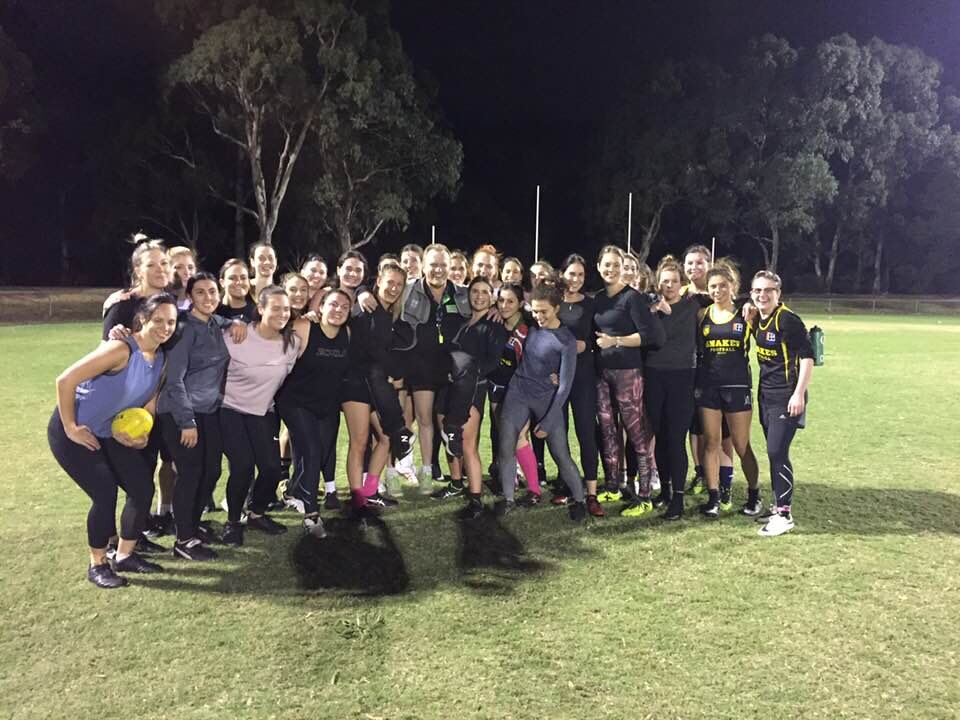‘Grassroots Coaching and Consulting Group', features inspiring teachers from all around the world. Below is the link to the group which features practitioners and researchers from all sports!!! Feel free to join! But, we must remain curious...
https www.facebook.com/groups/147501649318126/about/
Whilst off-field dramatics and atrocities are sadly the mainstay of off-season rugby league reporting, two key movements have happened over the weekend that have me hopeful that there is a future for ‘The Greatest Game of All’. Hopefully, the water bubbler conversation would have been dominated by Australian Rugby League’s Commissioner, Peter Beattie’s calls of life-time (and cross-code) bans for any players convicted of violence against women!
However, for some diehard fans and educators like me, a well-considered second place was a ‘trial’ of rule changes coming for U/7 games. Now, much like the video above, we must remind ourselves that sports like rugby league have been tinkering with the junior and youth game for years. For an interesting and advanced read, please see Paul Kent’s thought provoking rationale behind ‘no tackling’ and other changes at the very bottom of this piece. He starts with the fact that sports (not just NRL mind you) have been ‘cooking the books’ when it comes to participation rates!
From the outset, let me say that if Peter Beattie achieves his amazing aim of life bans for off-field violence sentencing, well over half of all Queenslanders will forgive him for past indiscretions like telling people to stay away from the Gold Coast ghost-town at the recent Commonwealth Games. In fact, the only people greatly effected by life-bans on evil humans will be Australia’s treasured comedians, Roy and HG, who have long proposed that there should be dedicated rugby league jails… (Sorry…) If I don’t laugh about how Australia’s ‘obsession’ with sport breeds what Margaret Heffernan (2011) calls ‘willful blindness’, then I’d give up any involvement in teaching physical pursuits. Roy and HG have kept me sane for decades! SCROLL to the very bottom for example…
As such, the outpouring negative response to the NRL ‘trial’ recommendations of tweaks to the game like ‘no tackling’ for U/7s did not surprise me, nor what it have surprised Margaret Heffernen or the hosts of Triple M’s ‘The Sporting Probe’. Indeed, I am writing this now with the knowledge that some suburban teams are proposing a breakaway competition…
But back to Heffernan, her 2011 book describes absolutely tragic examples of ‘willful blindness’ from the Nazi Holocaust through to the US sub-prime crisis of the previous decade. These wilfully blind situations are caused because humans hang around people like them and avoid alternative, challenging beliefs. It is well worth a read, but you can throw in Australian examples of the recent Aussie cricket ball tampering, or, the far more devastating patient safety breaches that occurred in Bundaberg Hospital (Cleary and Duke, 2017). Yes, human beings collectively desire to blatantly ignore the negatives and seek positives mainly even if it means putting others at risk of harm.
Thus, with the NRL now joining cricket and tennis, as major sports in this country saying that participation and retention numbers show things aren’t working anymore, I for one suggest this is brave example for other sports to follow. In the end, most mainstream sports are dying through bleeding numbers that you can find in previous posts of mine (or, look at Tennis, AFL and Cricket for starters). The ‘Ausplay’ figures from the government gave most of the loudest and dominant TV sports a massive kick in the behind when launched in 2016. However, few have admitted this, like the NRL. Indeed through its actions of 18 months of research on those leaving the game it is being positively proactive.
Thus, I might take the time over the next few posts to highlight a few of my thoughts on this report: https://playnrl.com/framework/research/national-retention-study/…..
As a PE trained educator/coach of many sports and contexts of a couple of decades including League, I am quick to ignore the ‘snowflake’ chorus from many caring adults who fail to realise what they don’t know. However, I have also seen lengthy arguments about listening to those who remain in the game. Well the NRL did in the massive research but certainly Heffernan could see the remaining tribe’s thinking as flawed and non-critical.
Now, I will say that I prefer the field to a research office but my anecdotal experiences over many years suggest that many people throughout ‘grassroots’ Aussie sport are being ‘willfuly blind’! Why wouldn’t they when the sports’ administrators and government departments have had their heads in the sand? In the end don’t we want players not viewers? If so please open your eyes to what’s ‘real’…
Yours in learning,
Gunny
Email: coachgunny@craiggunn.org
PS. Thanks to my coaching peer who recommended Heffernan’s book – Cracker!!! As is another I’ve read, ‘The Bigger Prize’
PPS. Here is the Broncos NRLW team turning up to ‘play’ with kids! Plenty of strength in the GAME if we learn together!
Cleary, S., & Duke, M. (2017). Clinical governance breakdown: Australian cases of wilful blindness and whistleblowing. Nursing ethics, 0969733017731917.
Heffernan, M. (2011). Willful blindness: Why we ignore the obvious at our peril. New York, NY, US: Walker & Company/Bloomsbury Publishing.
Paul Kent article: Accessed 18/12/18 https://www.dailytelegraph.com.au/sport/nrl/opinion/nrl-aims-to-bring-kids-back-to-the-game-by-bringing-the-fun-back-to-grassroots-footy/news-story/835de34c97f657f7047b93cff865952e?fbclid=IwAR0NMZqdf_YWer6U80jiwvTQrUV52Bq1sjr1Qn0dScwQWrCNTdGudt7PiYQ














